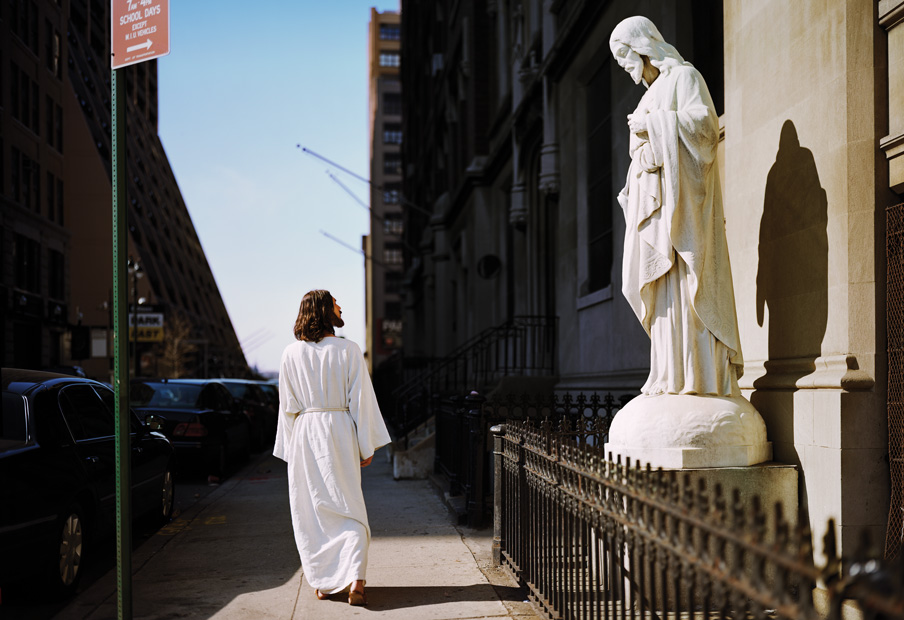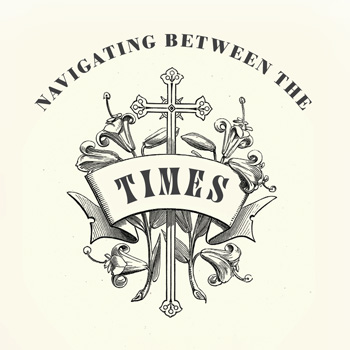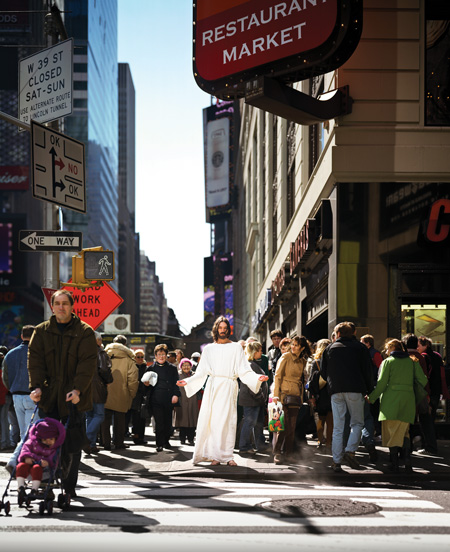
Photography by Greg Miller

A multiyear project is opening fresh conversations about the current moment and the future of theological education.
Rev. Dr. Elizabeth Conde-Frazier’s new book for the Theological Education Between the Times project, entitled Atando Cabos: Latinx Contributions to Theological Education, is about considering loose ends – cabos sueltos – from Latinx Christian history and then tying them up – atando cabos. The book considers the Latinx Protestant church and how disruptive forces, including Pentecostalism, have shifted the paradigm, focusing on how the work of the Holy Spirit can decolonize Christianity. In this essay, she considers how people responding to their own context are finding news ways to explore and deliver theological education, particularly through Bible institutes. In the process, they’re creating an ecology of theological education that is not necessarily focused on traditional methods.
In a conversation with a handful of leaders involved with theological education, I found each had a distinct expression of what theological education was.
One reflection was from a retired navy chaplain who began a set of courses to help people respond to the 2017 crisis of Hurricane Maria in Puerto Rico. He saw the great need for pastors to be able to address suicide prevention and trauma. He also sought to help pastors do self-care. The vision was to bring them together in the process of education, while participants continued in their own ministry, lay and ordained, while learning to reflect and be accountable to peers.
They truly did learn about self-care, trauma, and suicide prevention alongside what Chaplain Pablo considered the core disciplines for establishing theological thinking: Bible, theology, church history and foundations of theology. Unique to his program was the level of caring of those who taught alongside and the many ways of delivering the knowledge and skills: T.V., radio, and podcast. He also established some counseling centers in remote areas where students could grow in their skills as they were supervised in the work of counseling.
Chaplain Pablo considered all these the creation of a necessary ecology of theological education that responds to the contextual needs of his area. He had Memoranda of Understanding with different church groups and denominations. Bible institutes are not usually involved this way. The flexibility of these institutions has made for possibilities never before imagined.
“New paradigms and new participants bring new pedagogical challenges...”
A second leader worked with non-degree programs which – through focus on theology, counseling, and Bible – provided opportunities for much personal growth to its participants, mainly women who came with all levels of educational backgrounds, from elementary school to doctorates. What the participants gained personally, they used to share through their ministries and friendships. This program’s aim is personal transformation. Degrees are not important. And it is now expanding to include male cohorts. They have over 400 students and are self-sustaining.
Yet a third leader works with a Bible institute for community groups in their community. Its curriculum includes the traditional set of courses for preparation of church leaders: degree completion for immigrant high schoolers, parent education, and wrap-around services for teenage participants.
These are but a few expressions of theological education via Bible institutes. The leaders are multi-professional, they are entrepreneurs, community organizers or denominational leaders. The common thread is contextualization; in other words, the focus of the organization is responding to the needs of the participants with an understanding of what is taking place in their communal context. They create partnerships for collaboration, they have opened up the definitions of theological education – who it is for and what it is for, and they see themselves as part of a larger educational ecology.
On the other hand, there are other leaders who find themselves in more traditional programs and without the ability to make the necessary changes to respond to the needs of ministry so that leaders can be more effective.
These programs are controlled by denominational structures that have created a one-size-fits-all model for all groups, regardless of social class, language, or ethnicity. Directors receive a prescribed curriculum and textbooks may or may not be authored by someone familiar with the context of the students. Directors must be creative to find ways to offer supplemental educational opportunities in order to better address the ministerial contexts of their participants. Some programs have recognized the need to address bilingualism and generational tensions. This is done by creating bilingual programs where multiple generations take a course together and speak and write in different languages. This has created a need for books that are bilingual.
These are just some of the ways in which Latinx Bible institutes are giving expression to new approaches necessary for ministry. Theological education did not begin in these ways, so in order to take a new direction, it has been important to look back at how theological education began through the missionary movements of the last century and before. These historical reflections have much to teach us.
It also has been necessary to create theological/biblical paradigms that help us to expand and deepen the traditions of the church in light of new times and immigration. The paradigm of the Reformation can be helpful for responsible examination of theological education in transitional times.
New paradigms and participants bring new pedagogical questions and structural challenges and prospects. How can we teach effectively in a context where each generation understands the authority of a text differently? What types of questions or teaching dynamics help us to bring out what is already present in the participants’ circumstances, such as: experiences, traumas survived, ministerial skills, theological commitments, values and ethics? How do we help persons come to change in edifying ways? How do we tease out tacit knowledge, the type of knowledge that is intuitive, that someone may not be aware of having but which is a part of their effective practice of ministry? How can we get at this information through our pedagogy that we might then share valuable information and practices that can enhance our ministries together? What other disciplines need to be paired with traditional courses of theological education to create models that respond to the doing of social justice?

Photography by Greg Miller
These questions and discussions lead us to theological education that is interdisciplinary, intergenerational and interdependent. Reaching out to one another to explore what we may already be doing, and devising ways to do more if we do it together, is necessary in these transitional moments of theological education. Our partnerships then can aim at creating spaces for collaboration in remaking theological education that discerns its part in a larger ecology of education.
As we speak of decolonizing epistemologies, we find that care and self-determination become important elements from which such epistemologies are composed. With this in mind, it may be that what we extend as offerings of the prophetic in our teachings are not well-received because we offer them by using epistemologies of imposition rather than of confianza, or confidence and truth. To have confianza is to know that you are in a safe space where you can be your real self, where being your real self allows you to bring down your defenses and your need for the pseudo selves that we depend on. Therefore, where there is confianza we do not feel that others are defining us. By others we mean other institutions, rules, and expectations, whether professional, educational, religious, cultural or familial. Confianza is where even your own rules can be relaxed so that you can give yourself the chance to grow. The socializing filters of our lives are relaxed and the possibilities of rediscovery and reinvention of the self are present. From here we can then enter into deconstruction and reconstruction as expressions of self-definition, which then affect our communities.
Questions for reflection What does it take to be able to prepare to teach and to administer in these ways and for the creation of such spaces? Who are the partners interested in this type of education? How do we reconfigure the economics of theological education as a part of a larger ecology of education differently?
These are the questions that are being examined. Service and research mean finding unusual partners for dialogue and sponsored collaborations. What wonderful possibilities for making theological education the leaven in society. What partners are needed for dialogue in these possibilities?